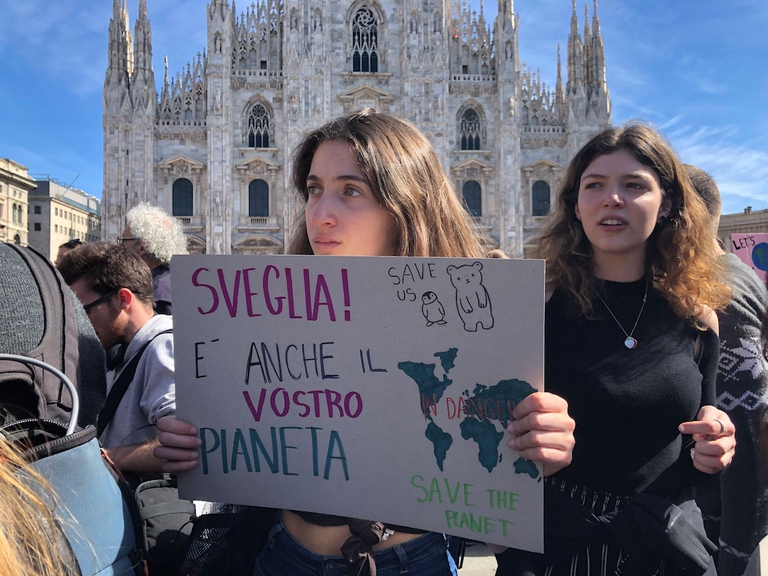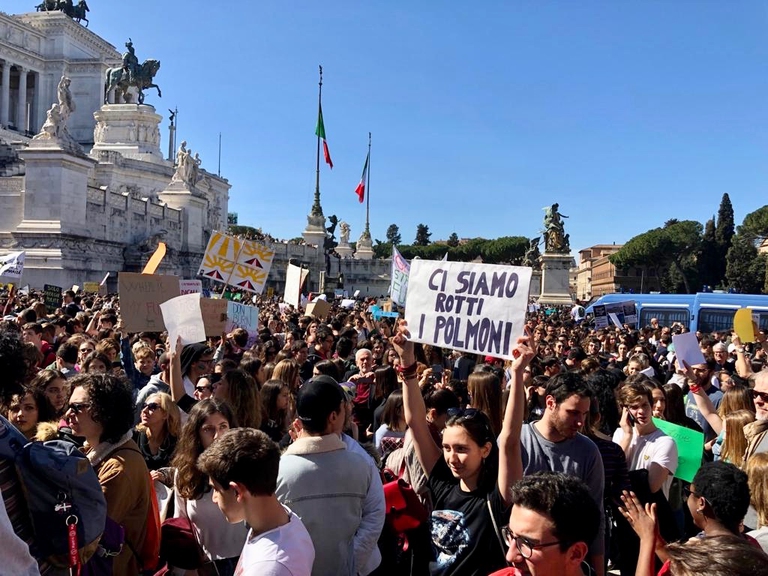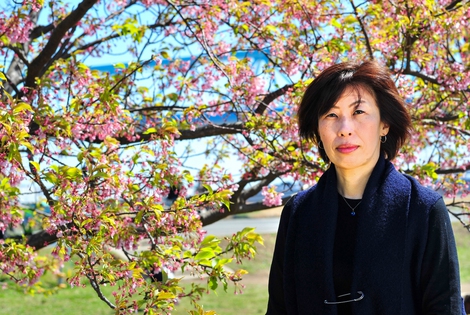
Three people putting the protection of the planet before themselves. Three powerful stories from Latin America, the deadliest region for environmental activists.
Why make excuses to belittle Greta Thunberg and the protest of the students fighting against climate change? There’s no answer to this question, but decoys aren’t working this time.
The word elite must have jumped to the top of search engine pages and social media trends, this is the only thing that would explain the many comments made following the global strike for the future that defend the elites to “prove” that Greta Thunberg, 16 years old, has aimed at the wrong target – many of them assuming that she contradicts her own beliefs by eating a banana, clearly not a locally sourced product, for breakfast. Comments arguing that what little has been done for the environment, nearly nothing that is, has occured “thanks” to governments, i.e. enlightened minorities. If it had been up to the “global population” we would already be dead and gone. What’s clear is that everyone is staring at the finger instead of looking at the moon behind it.
Rather, the Fridays for Future movement was born, grew and exploded on the 15th of March because governments and institutions, on which young people continue to rely by recognising their authority and power, have done too little, or nothing, to fight global warming. Millions of students are asking them for help because they know they can’t do it on their own. Changing lifestyles isn’t enough to slow down global warming, and promises or prohibitions that will come into effect in a few years’ time are useless: we “need entire sections of society to change radically, especially the energy sector,” states Youba Sakona, vice-president of the Intergovernmental Panel on Climate Change (IPCC). Is it citizens who can switch off all coal plants immediately? Is it common citizens who can levy taxes on aeroplanes to reduce CO2 emissions? Is it students who can change the price of meat that comes from intensive farms thousands of kilometres away? The answer is no, only the elites can do this, and young people are asking them to take action.
It isn’t true that people don’t understand or recognise the problem. It isn’t true that citizens think global warming isn’t important. Italians, for example, consider climate change to be the greatest global threat. This is the opinion of 28 per cent of the people who participated in the annual survey commissioned by ISPI, the Institute for International Political Studies based in Milan. This figure has more than doubled since 2017 (when the climate was cited by 13 per cent of interviewees) and has supplanted Islamic terrorism – the major concern for 16 per cent of participants, 22 points less than the previous year – at the top of the list.
Therefore, we shouldn’t be surprised if Italy was the country that saw the highest participation in the global strike for the future that took place on the 15th of March, organised by the young girls and boys who created the Fridays for Future movement over the past few months. Starting from Milan, where 100,000 people marched in the city centre, reaching its heart, piazza Duomo. Around one million students filled the squares of many Italian cities – out of a total 1.6 million all over the whole world, across all continents. Numbers that made the strike the greatest collective mobilisation for climate action ever to take place, according to the NGO 350.org.
Greta Thunberg’s role as leader, the personalisation of this battle instead of its fragmentation, have had a positive influence on people’s enthusiasm. If on the one hand citizens have always been inclined to following strong personalities (with some negative outcomes), on the other hand the young Swedish girl has shown that “no one is too small to make a difference” and that anyone can take part in this fight to pressure the “real” leaders, those whose choices can change the course of history in a relatively short space of time.
Yes, time is key. It’s the thing we need the most today. Scientists at the IPCC, founded in 1988 by the United Nations to study the phenomenon, have shown, written, said, screamed that there’s no time left. To limit the increase in global temperatures at no more than 1.5 degrees Celsius compared to pre-industrial levels – and avoid a permanent transformation of the Earth’s climate – we must halve CO2 emissions by 2030 compared to levels reached in 1990. We need swift and drastic action to reach this goal. Young people understand this because they know they’ll be the ones to deal with the consequences of this inaction directly, and have therefore announced another global strike for the future for the 24th of May.
A banana for breakfast is incoherent with Greta Thunberg striking for the climate in front of the Stockholm parliament every Friday? Never was a finger so small pointing at this supermoon.
Siamo anche su WhatsApp. Segui il canale ufficiale LifeGate per restare aggiornata, aggiornato sulle ultime notizie e sulle nostre attività.
![]()
Quest'opera è distribuita con Licenza Creative Commons Attribuzione - Non commerciale - Non opere derivate 4.0 Internazionale.
Three people putting the protection of the planet before themselves. Three powerful stories from Latin America, the deadliest region for environmental activists.
Influential scientist, activist and author Vandana Shiva fights to protect biological and cultural diversity, and against GMOs.
Kimiko Hirata has blocked 13 new coal plants in Japan, but she hasn’t done it alone. The 2021 Goldman Prize winner tells us about her movement.
The Goldman Environmental Prize, the “green Nobel Prize”, is awarded annually to extraordinary activists fighting for the well-being of the planet.
We talk to Shaama Sandooyea, activist and marine biologist from Mauritius onboard Greenpeace’s Arctic Sunrise ship in the heart of the Indian Ocean.
Arrested for supporting farmers. The alarming detention of Disha Ravi, a 22-year-old Indian activist at the fore of the Fridays for Future movement.
Water defender Eugene Simonov’s mission is to protect rivers and their biodiversity along the borders of Russia, China and Mongolia.
Chibeze Ezekiel, winner of the 2020 Goldman Environmental Prize for Africa, is fighting to guide new generations towards a renewable future.
Leydy Pech, winner of the 2020 Goldman Environmental Prize for North America, is the beekeeper who defended Mexican Maya land against the agro-industry.









